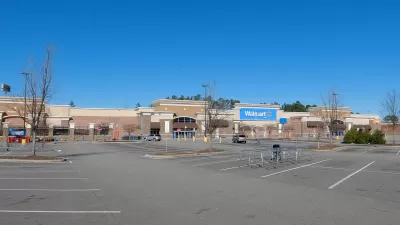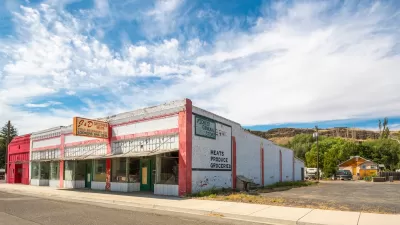A new study shows that supermarkets have migrated away from Canada's central and poorer neighborhoods, turning them into 'food deserts' with minimal access to more expensive food.
"The migration of supermarkets to the suburbs has left some Canadian cities with 'food deserts' in their most vulnerable neighbourhoods, according to new research that counters previous studies suggesting that phenomenon wasn't happening in this country.
Residents marooned in these grocery wastelands -- usually those who can least afford it -- have no easy access to stores that stock fresh, affordable food, researchers say, forcing them to pay convenience store prices or eat junk food.
It wasn't always that way.
'We found the location of all grocery stores in 1961 and discovered that the central neighbourhoods and poorer neighbourhoods had incredibly good access to supermarkets,' says Jason Gilliland, a geography professor at the University of Western Ontario who used London as his living lab.
'Over the last 40 years or so, grocers have really left the core for the suburbs. It's another side-effect of suburbanization.'
Gilliland and his co-author, Kristian Larsen, used computerized mapping to plot the location of London's supermarkets in 1961 and 2005. Then, using census data, city maps and bus schedules, they calculated each neighbourhood's access to grocery stores using real-life criteria such as a 1,000-metre walk (10 to 15 minutes) or a 10-minute bus ride with a short walk on each end.
Not only is access in many areas worse now, they found, but the poorest neighbourhoods are the most stranded."
FULL STORY: Cities 'food deserts'

Alabama: Trump Terminates Settlements for Black Communities Harmed By Raw Sewage
Trump deemed the landmark civil rights agreement “illegal DEI and environmental justice policy.”

Study: Maui’s Plan to Convert Vacation Rentals to Long-Term Housing Could Cause Nearly $1 Billion Economic Loss
The plan would reduce visitor accommodation by 25% resulting in 1,900 jobs lost.

Planetizen Federal Action Tracker
A weekly monitor of how Trump’s orders and actions are impacting planners and planning in America.

Wind Energy on the Rise Despite Federal Policy Reversal
The Trump administration is revoking federal support for renewable energy, but demand for new projects continues unabated.

Passengers Flock to Caltrain After Electrification
The new electric trains are running faster and more reliably, leading to strong ridership growth on the Bay Area rail system.

Texas Churches Rally Behind ‘Yes in God’s Back Yard’ Legislation
Religious leaders want the state to reduce zoning regulations to streamline leasing church-owned land to housing developers.
Urban Design for Planners 1: Software Tools
This six-course series explores essential urban design concepts using open source software and equips planners with the tools they need to participate fully in the urban design process.
Planning for Universal Design
Learn the tools for implementing Universal Design in planning regulations.
Caltrans
Smith Gee Studio
Institute for Housing and Urban Development Studies (IHS)
City of Grandview
Harvard GSD Executive Education
Toledo-Lucas County Plan Commissions
Salt Lake City
NYU Wagner Graduate School of Public Service





























